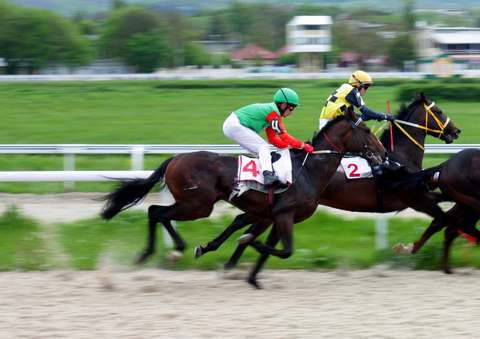
I am very fortunate to live in Saratoga Springs, New York. Last Friday was opening day at the Saratoga Race Course, and the weather cooperated. As a result, the crowds were out to watch racing at what I would argue is the country’s finest racing venue.
Friday morning, at about 5:30 AM, the line outside the track was all the way down Union Avenue, with thousands of patrons trying to be the first ones through the gates. About a month or so ago, I saw a similar line, but this line was filled with hundreds of people hoping to get summer jobs at the track. Those jobs are for what I will call “front of the house” positions, like gate attendants who take your money, people who sell programs, and food and beverage providers. Of course there are many more.
Those who weren’t in that line, however, were the back stretch workers who do all of the little things to make our track experience enjoyable. These are the trainers, exercise riders, jockeys, grooms, farriers, veterinarians, muckers, jockey agents, and all the other positions associated with horse racing.
While many of these workers are U.S. citizens, quite a lot of them are foreign nationals from Central America. Many of them enter the United States annually on an H-2B nonimmigrant visa. Quite frankly, these are positions that U.S. workers do not want to fill, and unfortunately for those in the horse racing industry, they are stuck trying to navigate the incredibly cumbersome (and expensive) process of obtaining an H-1B nonimmigrant visa for these workers on an annual basis… and in 2012, it got a lot worse.
The H-2B nonimmigrant worker classification allows foreign nationals who are citizens of certain named countries (with some limited exceptions) to accept temporary non-agricultural employment in the United States, after the employer has obtained a temporary labor certification from the U.S. Department of Labor by establishing that there were no willing, able, and qualified U.S. workers available during the period of recruitment.
The H-2B classification allows foreign nationals to provide “temporary or seasonal” services or labor, provided the employment does not displace U.S. workers “capable of performing such services or labor” and as long as the H-2B employment will not adversely affect the wages and working conditions of U.S. workers.
The temporary job may be professional, skilled, or unskilled, and there must be a seasonal, peakload, intermittent, or one-time need for the temporary services or labor. Therein lies part of the problem with using the H-2B nonimmigrant visa for backstretch workers. Employers need to clearly show that their need is short-term; that is, regardless of whether or not the position by itself can be explained as not being a permanent one, the employer has to have only a temporary need for the worker (i.e., a seasonal, peakload, intermittent, or one-time need for the temporary services or labor).
This was not a particularly big issue until 2012, when the government changed its interpretation of the law, effectively making a program that is vital to the horse racing industry, and to our enjoyment of it 40 days a year in Saratoga Springs, that much more difficult. The government used to say that workers met the standards of “seasonal” and “temporary” because the same owner or trainer needed them in different locations at distinct times of the year. In 2012, however, the government’s interpretation changed, and its position now is that these backstretch workers are essentially year-round employees. Now, owners and trainers must file separate visa applications for each worker at each meet. Perhaps the larger stables can afford this, but the smaller ones cannot.
This is yet another example where immigration reform could be useful. Unfortunately, things in Washington are not looking promising. When our government cannot even resolve the current humanitarian crisis affecting all of the children arriving at our borders, what chance do the owners, trainers and backstretch workers have?
